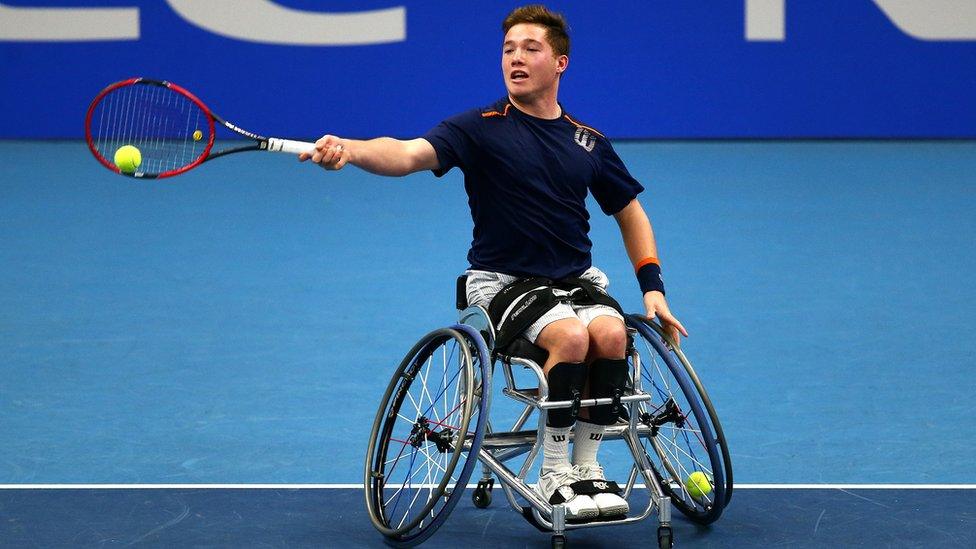How Britain's wheelchair tennis players are 'breaking glass ceilings'
- Published
How to play wheelchair tennis in 60 seconds
It was Great Britain's most over-performing sport at both the Rio Olympics and Paralympics.
Wheelchair tennis, whose national governing body is the Tennis Foundation, doubled its target at the Games, winning six medals in total, including a gold in the men's singles.
And six months on, the players continue to have success after success and the sport continues to grow and get more exposure on the world stage.
Quad doubles world number one Andy Lapthorne said: "We've made massive strides since I first started and we're breaking glass ceilings.
"Once people see it they love it, and they see tennis - it's just tennis.
"I keep telling everyone this is the fastest-growing disability sport in the world and if any young kid wants to play a disability sport and be treated the same as an able-bodied athlete, in my mind there's only one sport and it's wheelchair tennis.
"I see it being in 20 years' time the biggest disability sport in the world."
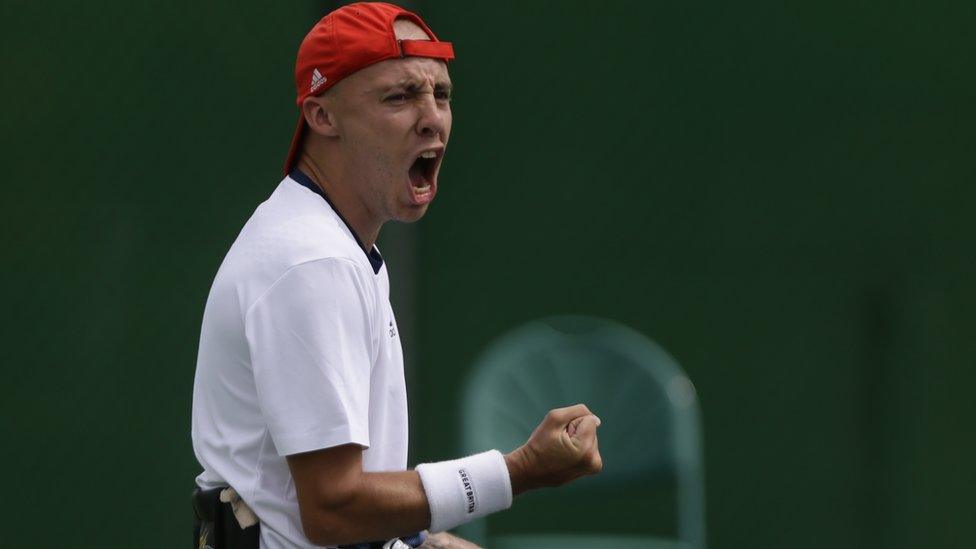
Andy Lapthorne picked up a silver medal in the quad singles in Rio.
He is just one of many in the current generation of British players who are helping to make this era in wheelchair tennis one that will be remembered.
Gordon Reid came home from Rio with a gold medal in singles and a silver medal in doubles, which he won with partner Alfie Hewett.
He also won four Grand Slam titles last year and ended 2016 as men's wheelchair singles world number one.
And already in 2017 he has celebrated defending his singles titles in Rotterdam and is excited for the rest of the year to come, where he will be looking to defend his French Open doubles crown and both his singles and doubles titles at Wimbledon.
Wheelchair tennis player Gordon Reid said it was "amazing" to get an MBE
But all this success hasn't come without a lot of hard work on Gordon's part and support from his friends, family and team.
He said: "I think it's an area where perceptions are changing as people are starting to learn more about Paralympic sport and wheelchair tennis.
"I'm a full-time athlete - most of the players, well, all of the top players now really are in our sport.
"We train just as hard as able-bodied athletes, five or six days a week with on-court tennis sessions and off court we start working in the gym."
Gordon also plays wheelchair basketball to help with his movement around the court, something he says his coach Karen Ross originally didn't "enjoy one bit".
"It is quite a high-contact sport, even though it's a non-contact sport," said Gordon
'Really incredible'
"But it's five or six years that I've played with no injuries apart from the odd ripped-off nail now and and again so I think she's a little bit more relaxed about the whole thing now."
Back in 2014, British number one Jordanne Whiley became the first - and currently the only British player in the able-bodied or wheelchair game - to achieve a calendar Grand Slam, lifting the doubles titles in all four majors in the same year, with partner Yui Kamiji.
Jordanne Whiley: "I've got a whole playlist of Disney songs"
She said: "I didn't actually start out the year to do the calendar Grand Slam - it just sort of happened.
"Yui is like my best friend. We first played together in 2013 in Wimbledon where we got to the final and I think that's when we realised we were going to be quite a good partnership.
"It's blossomed into something really incredible - we just play such good tennis together."
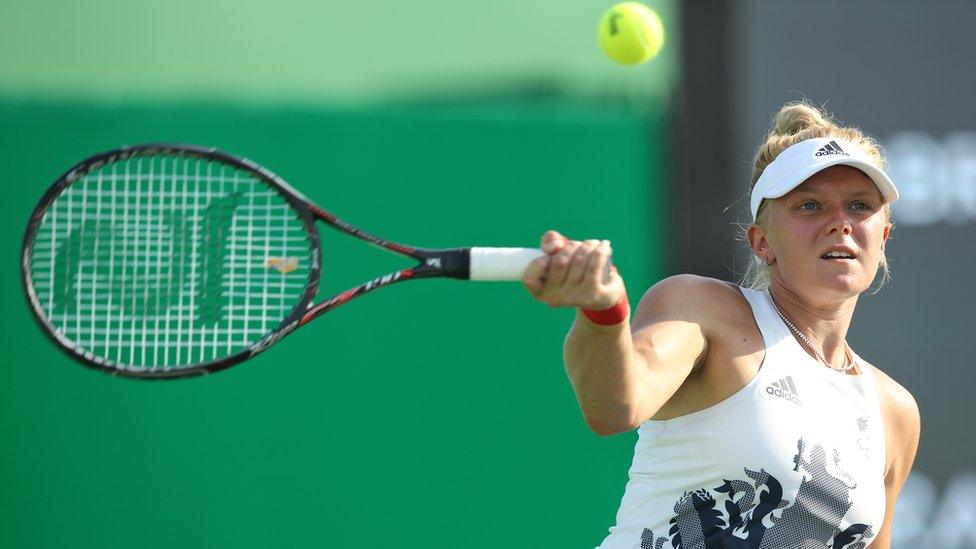
Jordanne Whiley is the first British player to achieve a calendar Grand Slam
But Jordanne isn't the only British player to have their moment in the spotlight. Gordon completed a career Grand Slam in men's doubles when he won the 2017 Australian Open title with Belgium's Joachim Gerard.
He said: "It was a last-minute partnership which was formed with Joachim but that's the last slam I needed to complete the set so now I have to try and do that in singles as well."
And after that achievement, Gordon stayed to cheer on fellow Brit Andy from the players' box, as the quads singles final became the first wheelchair tennis match to be played on a centre court at a Grand Slam.
"I never thought I'd be in the players' box for Andy Lapthorne in Rod Laver Arena," said Gordon, smiling.
"Hopefully the other tournaments will follow suit and put some more wheelchair tennis matches on the big courts."
Talent showcase
Andy, who had already claimed the Australian Open doubles title for the fifth time at the tournament, eventually finished as runner-up to Australia's Dylan Alcott in the singles but it is a moment he will never forget.
"To be given the opportunity to showcase what we can do on a stage like that was amazing.
"I think maybe the occasion got to me though - not so much because I wanted to win but just because I love tennis and I knew what it meant to our sport to finally get the opportunity to play on that court.
"It's getting to the stage now where it's quite scary some of the courts we are playing on, but it's great and it's moving our sport forward and that's what we need to do."
They are ranked among the best in the world and they compete alongside the able-bodied game in the same tournaments, sharing the same locker rooms as the likes of Andy Murray, Novak Djokovic and Roger Federer.
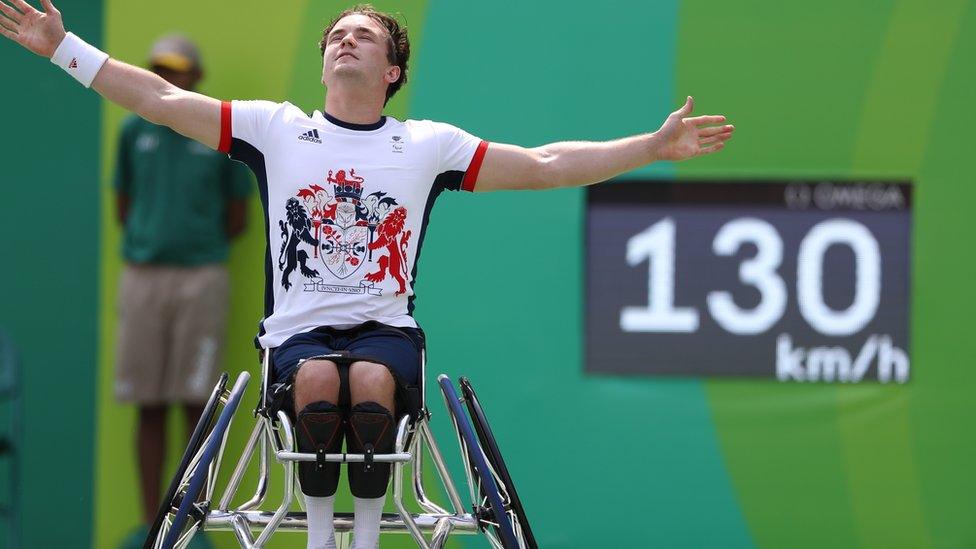
Gordon Reid celebrated in style after his singles gold in Rio
Andy has even had a chance to hit with Djokovic, who, alongside Andy Murray, is a big supporter of the game.
He said: "The first time he did it was at the US Open before he played Roger Federer in the final.
"The day before just randomly we said we were going to go and have a hit and he actually got in my everyday chair, which doesn't have an anti-tip on the back of it.
"And I thought he was going to tip out the day before the final."
Inspirational legacy
When the current generation of players retire - whenever that may be - they will leave behind a legacy that will inspire not just the next generation but many more.
But Andy, who has just added yet another doubles title to his growing list - meaning he is undefeated in doubles since November 2016 - has one last thing he wants to see happen before he can "retire a happy boy".
He plays in the quad division meaning that, unlike Gordon and Jordanne, he doesn't get the opportunity to play at Wimbledon and the French Open.
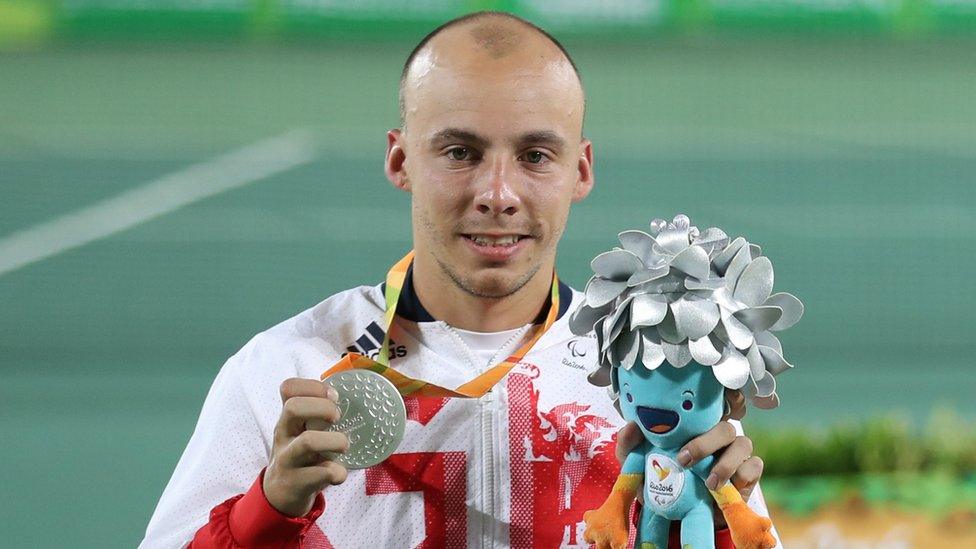
Andy Lapthorne with silver after playing Dylan Alcott in the singles final in Rio.
A determined and passionate Andy said: "Me and Dylan, we want that break at Wimbledon because that's where we want the rematch of this year's Australian Open final.
"I want to be part of the group or the main guy that gets us in those two Grand Slams so that when there's a young Andy Lapthorne or Dylan Alcott, some young kid who has got more than just his legs affected who has a dream of playing at Wimbledon, he doesn't wake up like I did and not have the opportunity."
- Attribution
- Published23 March 2017
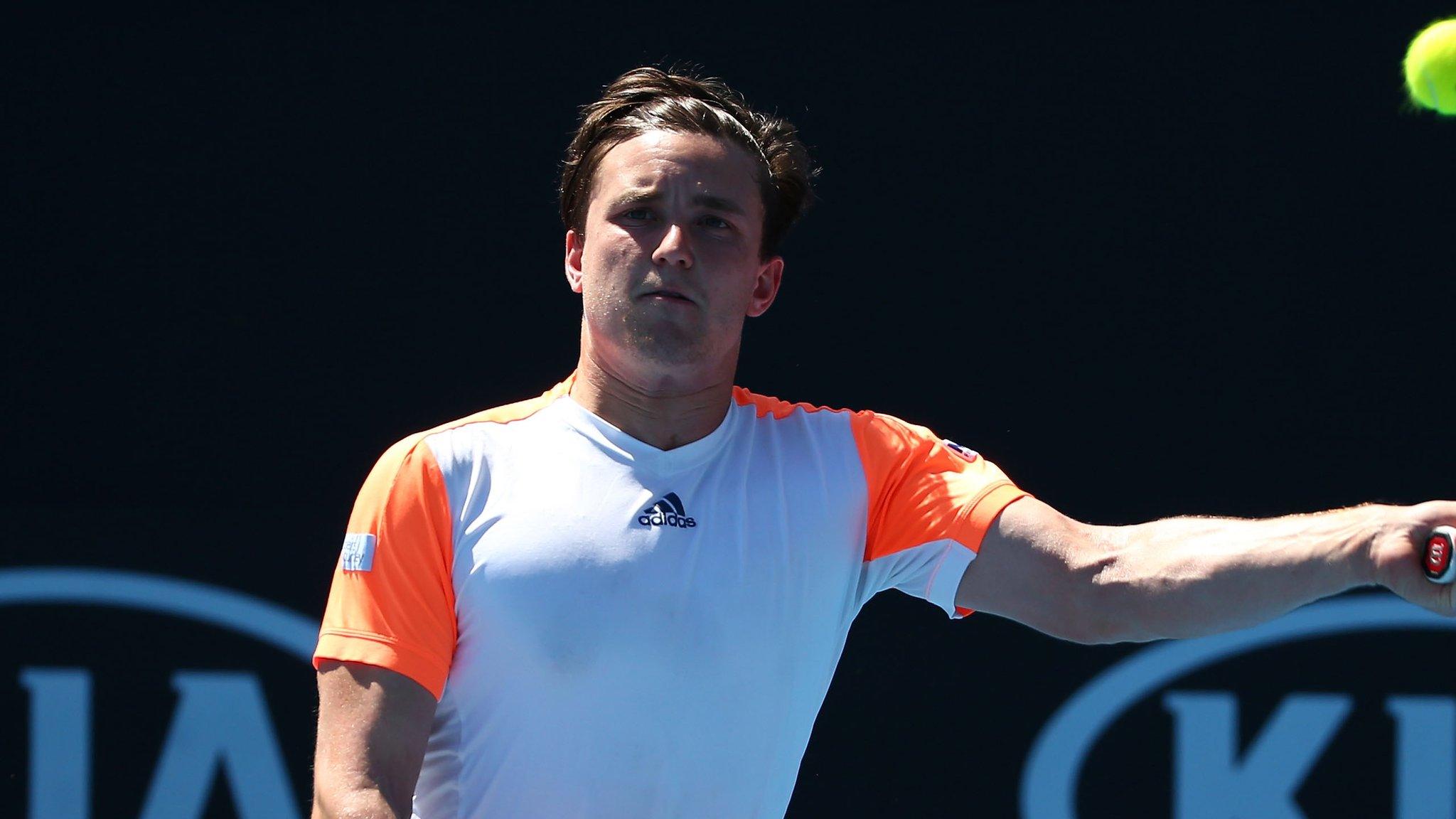
- Published5 December 2016
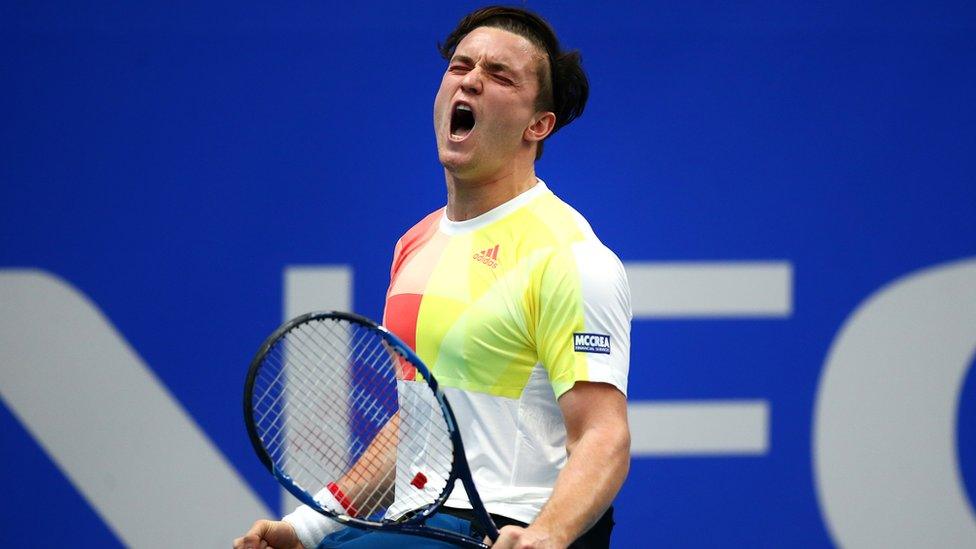
- Attribution
- Published26 January 2017
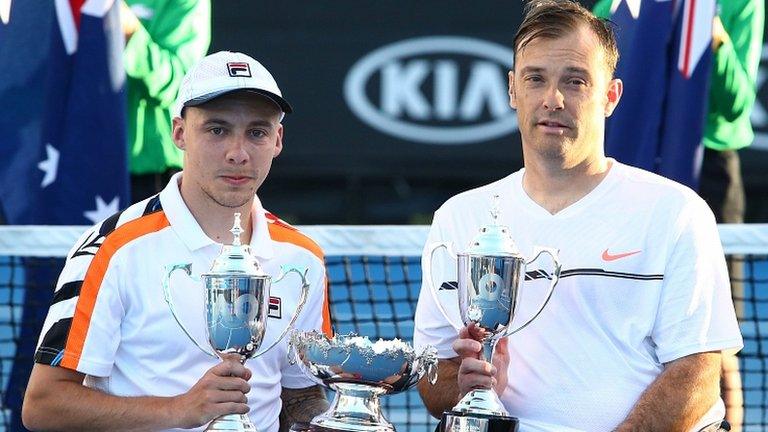
- Attribution
- Published10 July 2016
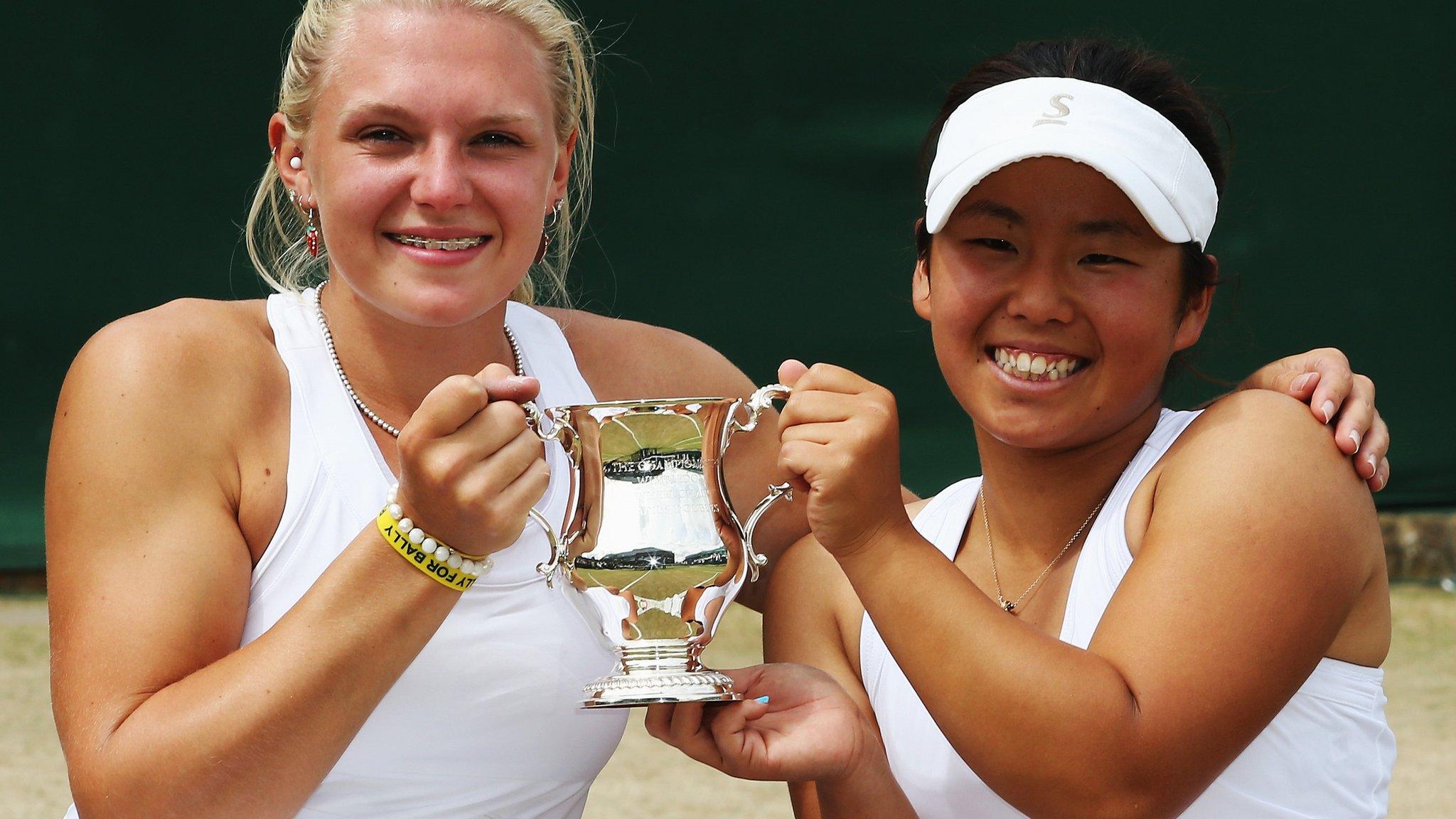
- Published30 November 2016
